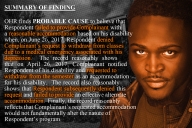You have /5 articles left.
Sign up for a free account or log in.
Baylor University's board on Friday voted to let up to 25 percent of its membership go to non-Baptist Christians, ending the tradition of allowing only Baptists on the governing body.
While a number of Baptist colleges and universities in recent years have loosened or ended ties to state Baptist conventions, the move by Baylor is notable because it is widely considered the flagship university of Southern Baptists. The move came despite opposition from the Baptist General Convention of Texas, which last year voted down a similar proposal by Houston Baptist University to permit the election of a minority of non-Baptist trustees there, with church leaders arguing at the time that allowing non-Baptist trustees would dilute the university's religious identity.
Baylor's statement announcing the change made clear that the university is well aware of the sensitivity around the issue. As the Board of Regents gains some non-Baptist members, it will permit only Baptist members to vote on any future changes in rules about the religious qualifications of board members, and about any theological issues related to Baylor's George W. Truett Theological Seminary. And the same announcement from the university noted that Baylor was creating a new Baptist studies research center, and was adopting a plan to add new scholarships for the children of Baptist ministers and missionaries.
Baylor officials were not available for interviews about the shift.
The university announcement quoted R. Dary Stone, chair of the board, as saying that the board wanted to include "deeply committed fellow Christians who share Baylor's mission, vision and core theological principles but who are not currently affiliated in their church life with a Baptist congregation." The statement also quoted Ken Starr, the university's new president, as saying that "Baylor maintains a strong and unwavering dedication to advancing the principles and tenets of the Baptist faith which have been and will always remain a hallmark of a Baylor University education." (Starr was raised in Church of Christ congregations, but has attended a Baptist church since arriving in Waco to assume the presidency.)
Baylor released a series of endorsements of its shift, from key figures in Texas, Baptist churches and the faculty at the university. But the Associated Baptist Press reported that the state's Baptist convention had written to regents prior to the vote, opposing the change.
Such opposition may fail to carry the day not only at Baylor, but at Houston Baptist University. Robert Sloan, president of Houston Baptist (and a former president of Baylor), said via e-mail that he had felt confident in the proposal -- rejected by the state Baptist convention -- to make a similar change there because the selection process would still involve "a very solid, ecumenical and evangelical confession of faith similar to many in the history of the church." Sloan said that "we did not and do not have to have the approval of the [state conference], but we sought it as a matter of communication and fellowship. Our board is considering what to do, if anything, in this matter and, whatever we do, we will continue to affirm our commitment to our historic Baptist affiliations and connections."
Of Baylor's 14,900 students, the university states that nearly 5,287 identify as Baptists -- making them the largest religious group, but by no means a majority. The next largest groups are Roman Catholic (2,128), nondenominational Christians (2,091), and Methodists (1,156). Most of the other students identify with various Christian denominations, but the college also enrolls 125 Hindu students, 122 Muslim students, 84 Buddhist students, 22 Jewish students and 43 atheists.
Samuel Schuman, who studied Baylor for his 2009 book, Seeing the Light: Religious Colleges in 21st Century America (Johns Hopkins University Press), called the vote by the university's board both "significant and inevitable." He explained that "there has been tension for quite a while at Baylor about aspirations to be a national research university and their strict Southern Baptist tradition, and I think it was almost inevitable that something would have to give a bit."
Leaders of many denominations, Schuman said, fear the "slippery slope" in which first there is compromise on one religious tradition, then another, and eventually a religious institution may not be distinguishable from its secular counterparts. "The fear is that you give an inch and what's next? Today dancing, tomorrow gay marriage," he said. (Baylor lifted a ban on dancing on campus in 1996, and then only with strict rules against "obscene or provocative" moves on the dance floor.)
Schuman said that he didn't expect Baylor to go secular, but that the changes that have taken place reflect the reality that religious colleges risk "becoming irrelevant" if they too narrowly define their communities. "Just like linguistic change, you can slow change down, but it's unwise and impossible to stop all change," he said.
Matt Hodges, a junior religion major at Baylor, said he has been thinking a lot about the change in the board's rules. Hodges is a Baptist, and is considering going to Baptist seminary after he graduates. He said that when he was looking at colleges, Baylor's Christian identity was more important to him than its Baptist heritage. He described the experience of having religion professors pray for the class before a test as a typical experience at Baylor, but likely not at secular institutions.
Hodges said he worried that limiting board membership to Baptists created "alienation" for the majority of students who are not Baptist. He said it was crucial for the university to maintain "its core values," and that he hoped the screening process for regents would make sure that all of them "share core values and theology." But stating that "religion is subjective and was developed by man," Hodges said values matter more than "one's religious practices on a Sunday."
He added: "I will not say that a Methodist is less qualified to make an important decision than a Baptist if their values are sound."
At the same time, Hodges said that he also believes the board was correct not to open up membership to people of any faith or no faith at all. "If you are going to keep your identity as a Christian university, the board should remain 100 percent Christian," he said.
Kate Williams, a senior who has been involved in the student government at Baylor, agreed. Williams was raised as a Baptist, but said that she now considers herself a nondenominational Christian. She said that she viewed the Baylor board change as consistent with her religious outlook. "I think this goes back to the original meaning of what it means to be a Christian -- one united body rather than separated into denominations."
Williams, too, said she supported limiting board membership to Christians. "I think we need that to remain Christian," she said. "I understand that other points of view are influential in developing higher education, but Baylor is a Baptist institution and should remain so."








